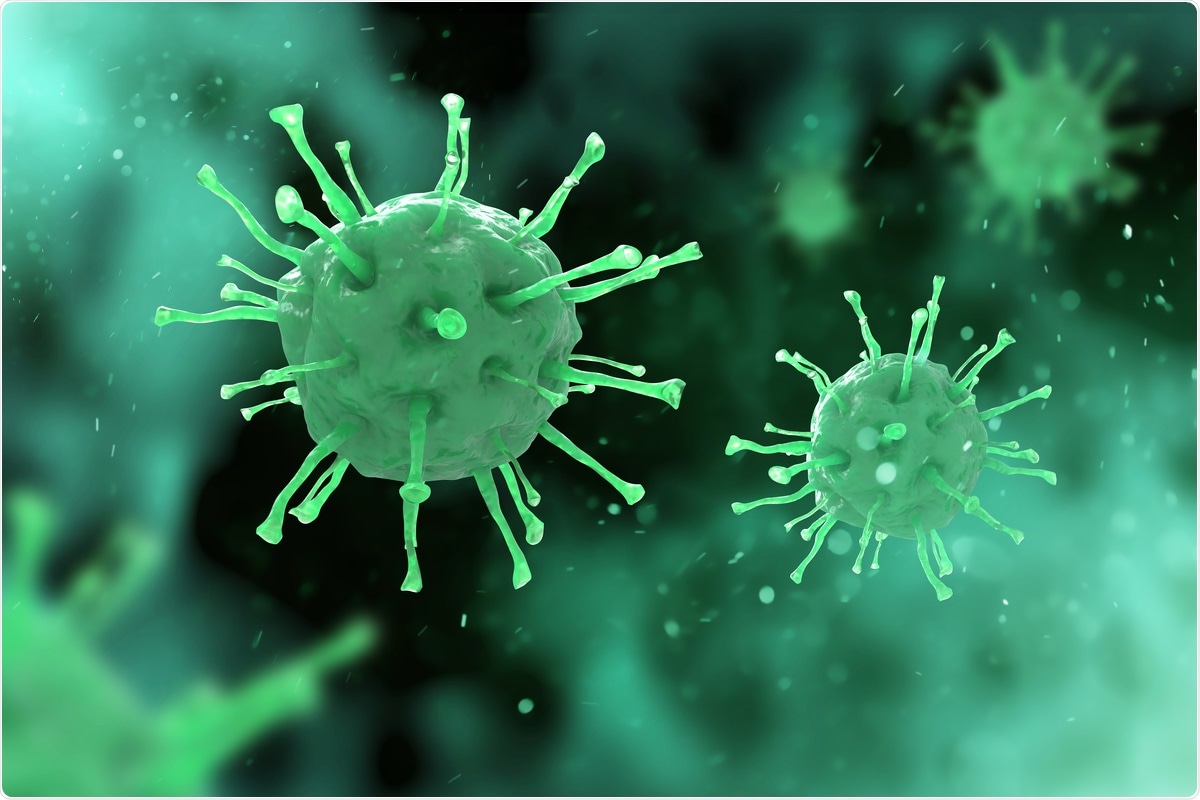Severe acute respiratory coronavirus 2 (SARS-CoV-2) has affected millions with coronavirus disease 2019 (COVID-19). Despite vaccines being available to prevent severe disease and hospitalization, there is a lack of a definite antiviral therapy to cure the infection.
 Study: Enisamium Inhibits SARS-CoV-2 RNA Synthesis. Image Credit: Andrii Vodolazhskyi/ Shutterstock
Study: Enisamium Inhibits SARS-CoV-2 RNA Synthesis. Image Credit: Andrii Vodolazhskyi/ Shutterstock
Available antiviral strategies include treatment with remdesivir or convalescent plasma. Still, they can only be used in the early stages of the disease and have received FDA approval only for emergency use. The development of additional strategies remains relevant and necessary.
The continuous emergence of variants of concern (VOC) is another major concern since mutations can help the virus evade immune reactions induced by currently available vaccines. A key target for novel drug screening is the RNA polymerase of SARS-CoV-2 responsible for viral replication within host cells.
One of the drugs highlighted by the World Health Organization as a candidate therapeutic against SARS-CoV-2 is enisamium. Enisamium is licensed for use against influenza in 11 countries, and it was shown to reduce virus shedding and improve influenza patient recovery. A recent study showed that VR17-04 – a metabolite of the compound inhibits the activity of the influenza virus RNA polymerase
In a study published recently in the journal Biomedicines, researchers studied the effect of enisamium on the growth and proliferation on Caco-2 and normal human bronchial epithelial (NHBE) cells. They further explored the molecular dynamics (MD) simulation of VR17-04 and how it stopped viral replication.
Study details
Researchers used in-vitro molecular biology assays to analyze the effect of enisamium on SARS-CoV-2. They first incubated Caco-2 cells, a standard cell line for SARS-CoV-2 infection in the laboratory, with enisamium iodide or enisamium chloride for six hours and subsequently infected the treated cells with SARS-CoV-2.
After 48 hours, inhibition of viral infection was assessed by antigen staining for viral nucleoprotein expression and RT-qPCR for viral genome replication. Researchers then observed a significant reduction in both viral nucleoprotein expression, a reduction in the ability of the SARS-CoV-2 to lyse and kill host (Caco-2) cells, and an exponential reduction in the number of viral genome copies in the infected cells as a function of the enisamium concentration.
MD simulation analysis and in vitro activity assays suggested that the metabolite VR17-04 reversibly binds to the viral RNA and prevents replication of the genetic material by blocking the sites for RNA transcription altogether. Hence, the viral RNA fails to replicate and cannot spread further.
Furthermore, the use of a newly established mini-genome assay confirmed that Enisamium Inhibits SARS-CoV-2 nsp12/7/8 activity.
The team of researchers also investigated the mechanism by which enisamium metabolite VR17-04 inhibits the SARS-CoV-2 nsp12/7/8 complex. They measured the 1H NOESY spectrum of VR17-04 in water and found that VR17-04 preferentially adopts an eclipsed conformation.
Finally, the researchers tested the hypothesis that VR17-04 could form base-pair interactions with the template in the SARS-CoV-2 nsp12/7/8 active site. They did this by docking VR17-04 into the SARS-CoV-2 nsp12/7/8 complex bound to template RNA and remdesivir monophosphate. Findings demonstrated that VR17-04 could be accommodated into the active site in a similar way to remdesivir monophosphate. Further MD simulation infers that VR17-04 is able to bind a template cytosine or adenine base in the active site of the SARS-CoV-2 RNA polymerase.
Study implications
This study highlighted the progress of developing antiviral therapy against the novel coronavirus. The study successfully showed that enisamium, previously approved for influenza in 11 countries, could inhibit SARS-CoV-2 infection and viral RNA synthesis on artificial cell lines in laboratory conditions.
Unlike remdesivir, enisamium does not need to be administered to the vein, allowing its use outside the hospital. This study is crucial for developing antiviral therapies to cure COVID-19 rather than depending on fast-tracking vaccines.